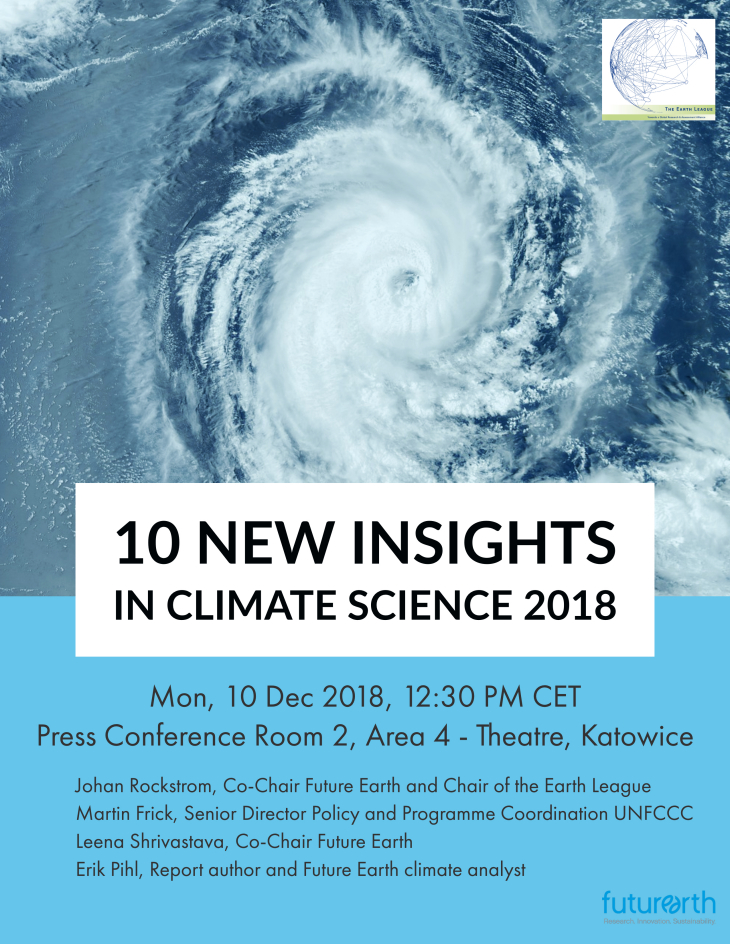The Earth League and Future Earth submit statement to UNFCCC at COP24

Dec. 10, 2018.
Many impacts of human-induced climate change, from drought and heat waves to Antarctic ice melting, are coming earlier than expected. Extreme events, such as recent fires in North America and floods across Asia, can with increased certainty be linked to global warming. Halving global emissions over the next decade is technically achievable and would save the world billions of dollars, say scientists in a new statement to coincide with the UN annual climate talks in Katowice, Poland.
Their warning comes as global emissions are projected to rise for a second consecutive year to a new historical high after three stable years.
“Emissions must peak by 2020. The world cannot allow climate extremes to unfold and increase the risks of violating the planetary boundaries when all the solutions to solve this challenge are here in front of us,” said Professor Johan Rockstrom, Designated Director of the Potsdam Institute for Climate Impact Research, Co-Chair of Future Earth and Chair of the Earth League, the organisations that produced the statement.
“Our analysis of the most recent research shows that a global transition to clean energy is affordable, achievable, and already underway,” says Future Earth Executive Director Amy Luers. “But to avoid catastrophe, we must ratchet up the pace and move beyond energy. The research shows clearly that we must cut emissions by half across all economic sectors in the next decade, to have a chance of avoiding the worst impacts of the climate crisis.”
The statement, “10 New Insights in Climate Science,” will be presented at the United Nations Framework Convention on Climate Change 24th Conference of the Parties, 10 December, and distributed to negotiators in Katowice. It is published by Future Earth and the Earth League, two major international organizations representing networks of global sustainability scientists, and summarizes recent Earth-system science, policy, public health and economic research.
Their warning comes as global emissions are projected to rise for a second consecutive year to a new historical high after three stable years.
“Emissions must peak by 2020. The world cannot allow climate extremes to unfold and increase the risks of violating the planetary boundaries when all the solutions to solve this challenge are here in front of us,” said Professor Johan Rockstrom, Designated Director of the Potsdam Institute for Climate Impact Research, Co-Chair of Future Earth and Chair of the Earth League, the organisations that produced the statement.
“Our analysis of the most recent research shows that a global transition to clean energy is affordable, achievable, and already underway,” says Future Earth Executive Director Amy Luers. “But to avoid catastrophe, we must ratchet up the pace and move beyond energy. The research shows clearly that we must cut emissions by half across all economic sectors in the next decade, to have a chance of avoiding the worst impacts of the climate crisis.”
The statement, “10 New Insights in Climate Science,” will be presented at the United Nations Framework Convention on Climate Change 24th Conference of the Parties, 10 December, and distributed to negotiators in Katowice. It is published by Future Earth and the Earth League, two major international organizations representing networks of global sustainability scientists, and summarizes recent Earth-system science, policy, public health and economic research.
No comments:
Post a Comment